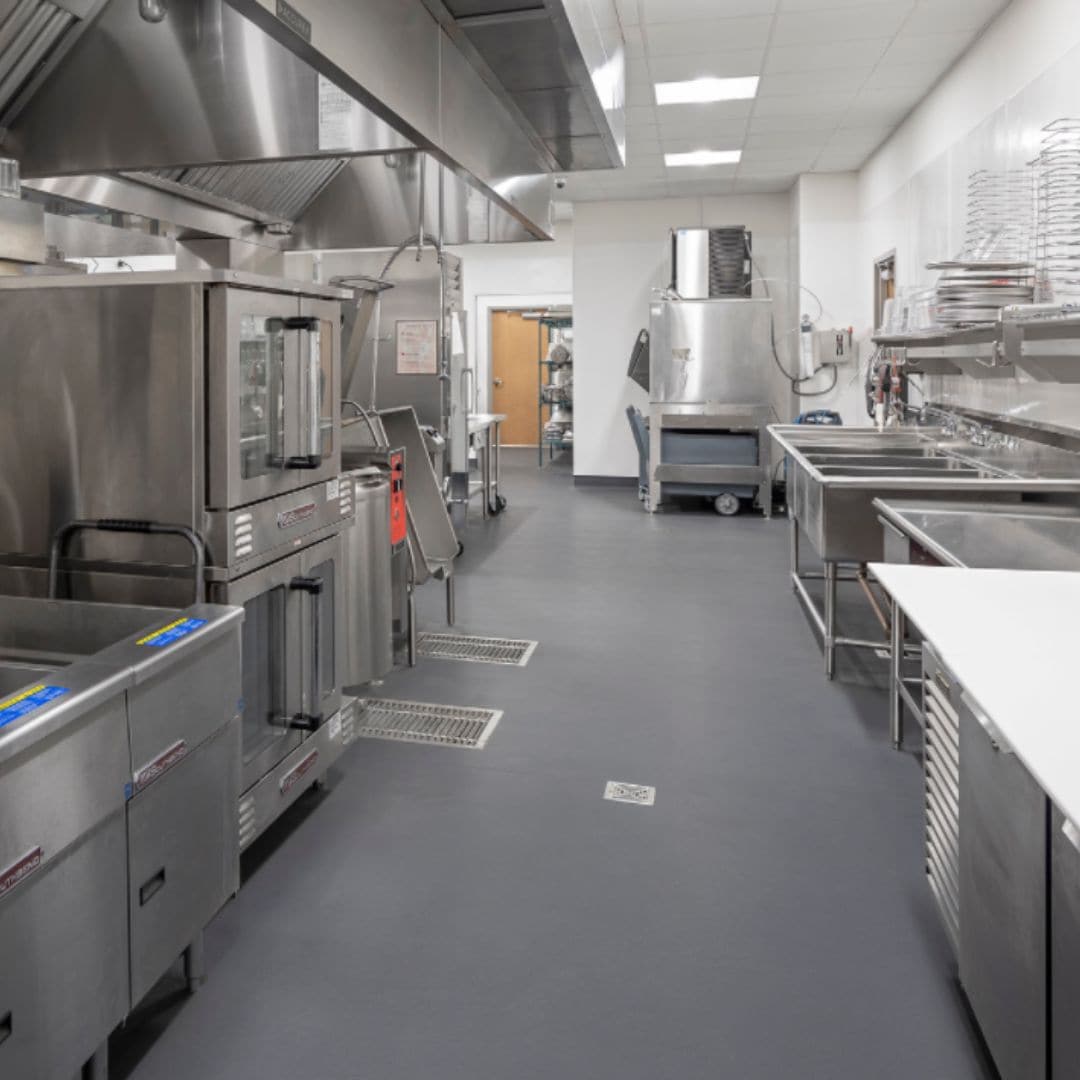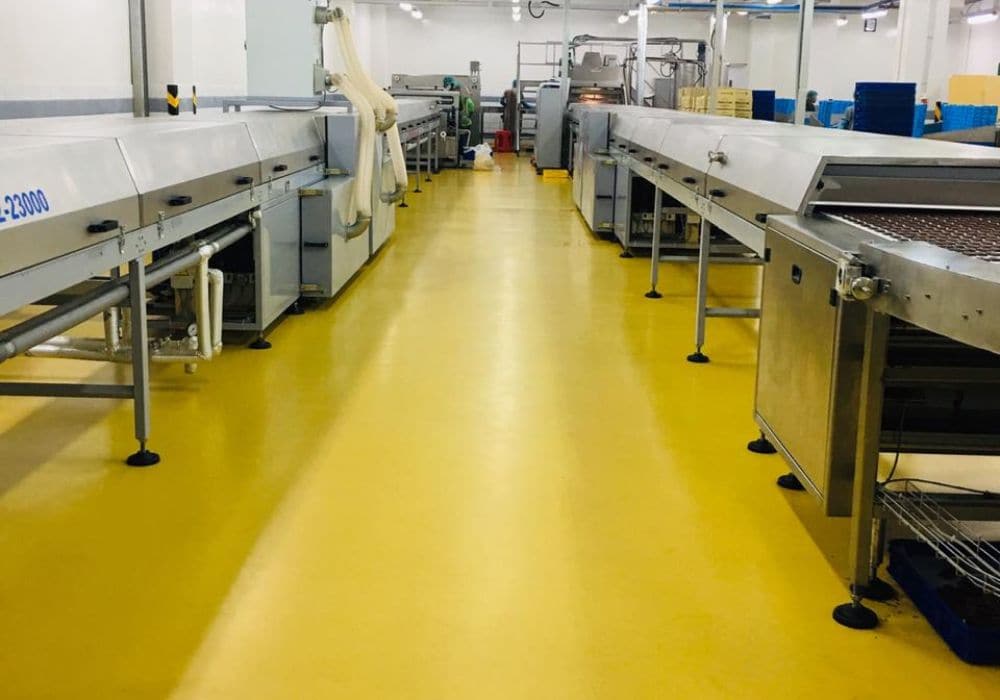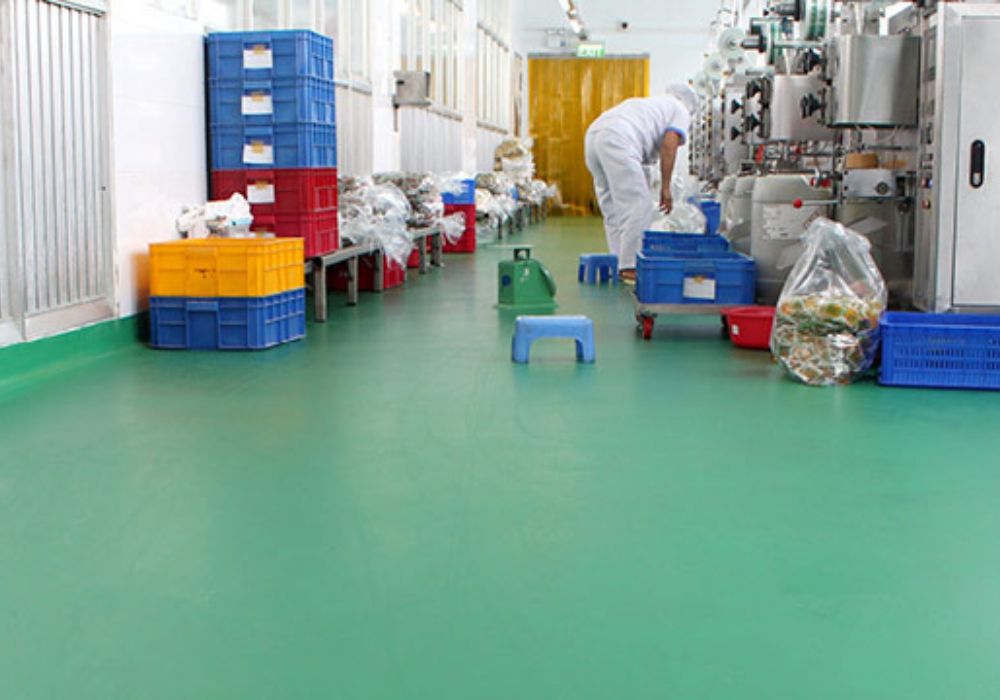How does hygienic flooring contribute to cleanliness?
Hygienic flooring contributes to cleanliness by providing a seamless and non-porous surface that is easy to clean and maintain. It minimizes areas where dirt, debris, and pathogens can accumulate, reducing the risk of contamination.
Can hygienic flooring be customized for different environments?
Yes, hygienic flooring comes in various colors and finishes, allowing for customization to match the aesthetic requirements of different environments. This ensures that the flooring not only meets hygiene standards but also complements the overall design.
Where is hygienic flooring commonly used?
Hygienic flooring is commonly used in environments where cleanliness is of utmost importance, such as healthcare facilities, food processing plants, pharmaceutical industries, laboratories, and other settings with strict hygiene requirements.
Is hygienic flooring resistant to chemicals?
Yes, hygienic flooring is engineered to resist a wide range of chemicals, including cleaning agents, disinfectants, and industrial-grade substances. This ensures that the flooring remains unaffected by routine cleaning and sanitizing procedures.
How does hygienic flooring comply with industry regulations?
Hygienic flooring systems are often formulated to meet industry-specific regulations and standards, such as those set by health authorities or food safety agencies. This ensures compliance with hygiene and sanitation requirements and provides assurance of the flooring's suitability for specific environments.
What are antimicrobial properties in hygienic flooring?
Antimicrobial properties in hygienic flooring refer to the ability of the flooring material to inhibit the growth of bacteria, mold, and fungi. This additional layer of protection helps maintain a sterile environment, especially in settings with high hygiene standards.





